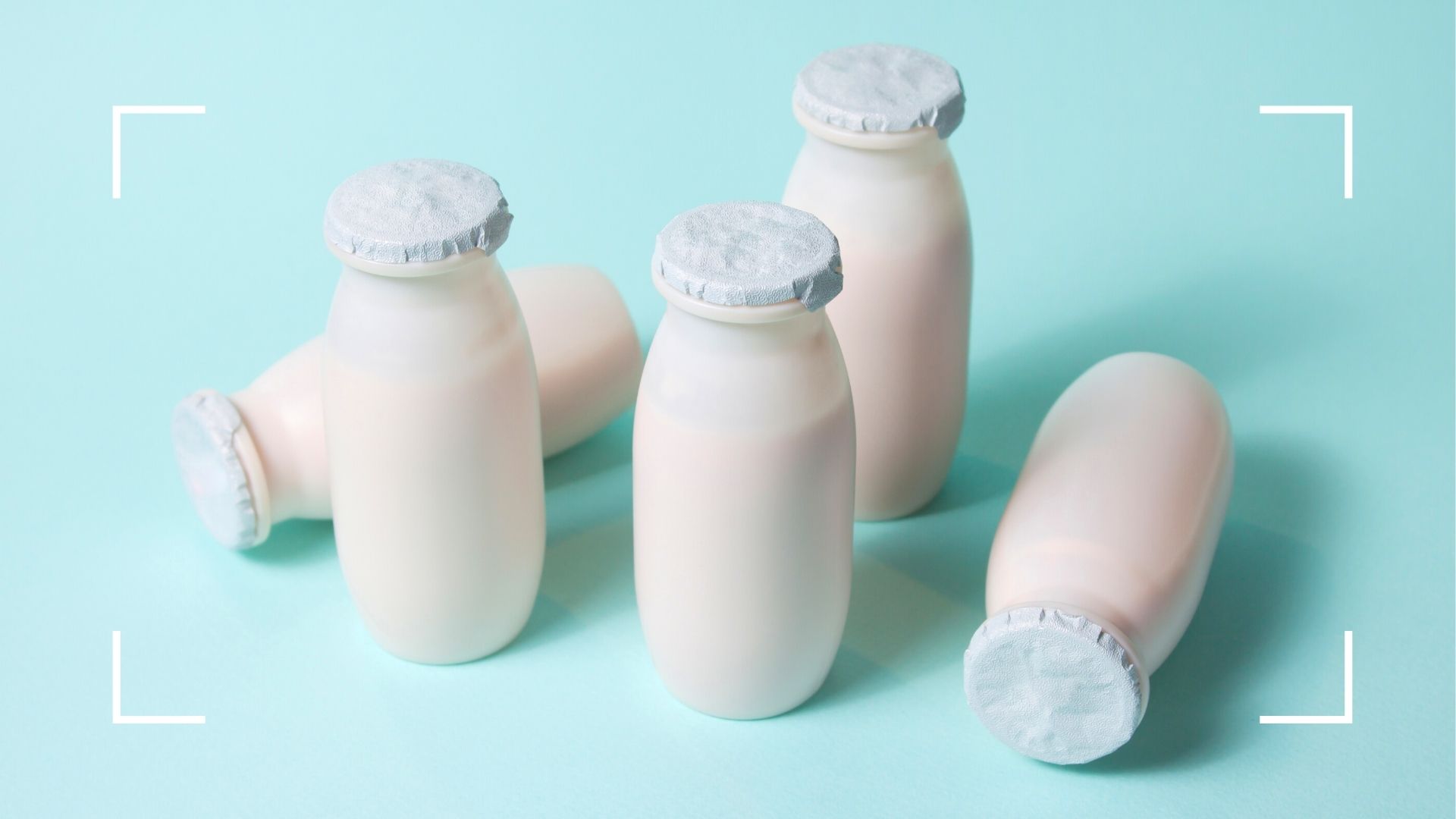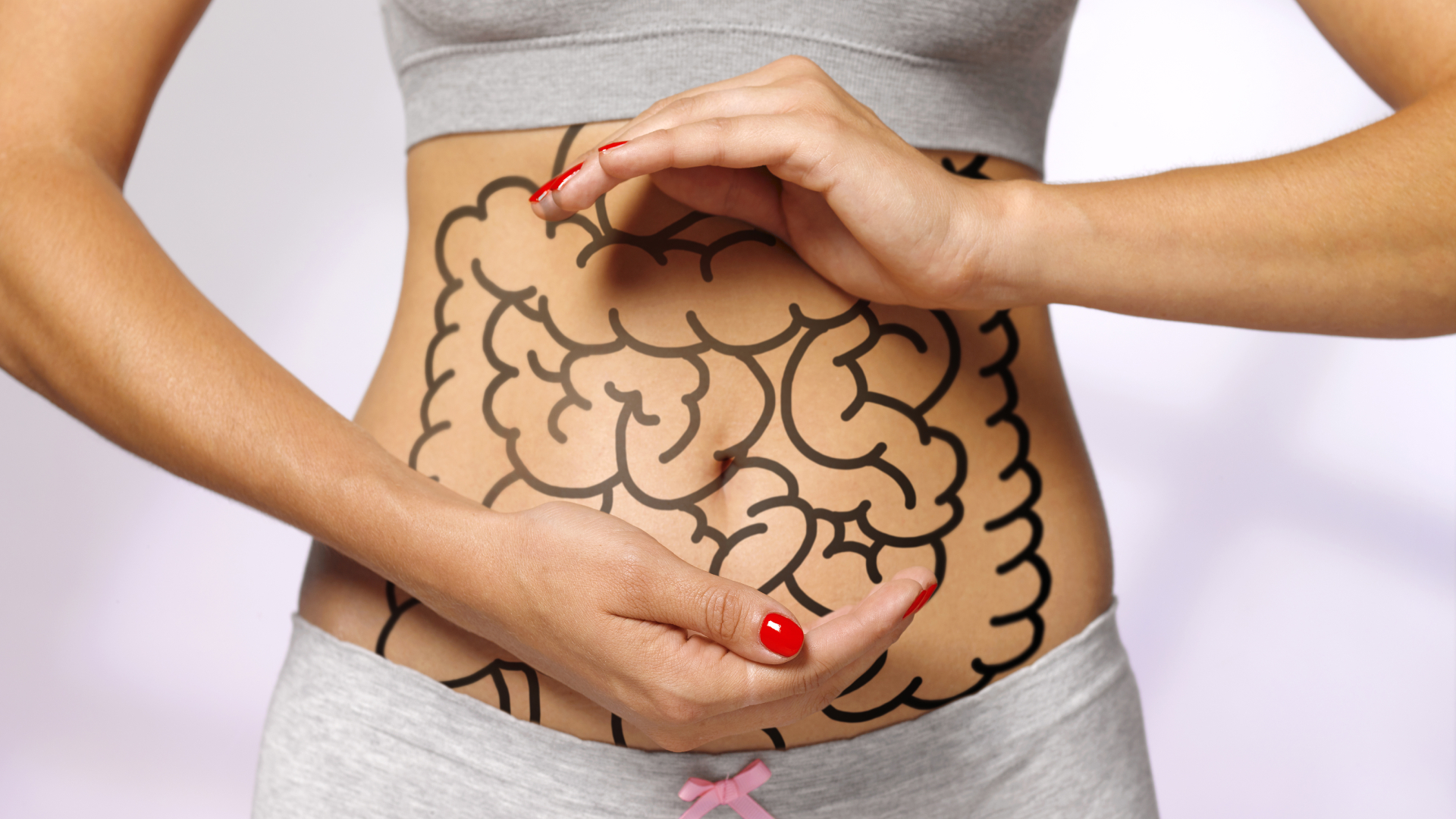What are prebiotics and what do they do? The experts reveal common foods, plus why you need them in your diet
Understanding the importance of prebiotics in your diet will benefit your health


Okay, so maybe you don’t want to know all of the details of what happens in your digestive tract. It can be quite a sensitive subject, and system for that matter! But today might be the perfect day to learn more about prebiotics and what they can do for your body. If your digestive system is operating to the best of its ability, it can make your life healthier and easier!
Prebiotics are among the best vitamins for women, and they’re incredible for women’s health across the board. Prebiotics can help with digestion and there's a strong link between gut health and anxiety. So, if you’re wondering what exactly prebiotics are, or maybe even some of the less delicate questions, such as do probiotics cause gas? Do they make you poop? We asked the experts the answers. Here’s how you can improve gut health and your whole body can benefit from more prebiotics.
What are prebiotics?
Alix Tomkinson, registered nutritional therapist, explains that prebiotics “are a form of nondigestible dietary fiber.” They exist in much of the food we consume, and these prebiotics “feed and promote the growth of beneficial microorganisms that live in the gut. Prebiotics are essentially the food of the microbiome”.
And what’s the difference, exactly, between prebiotics and these beneficial microorganisms, or probiotics? Probiotics are the healthy bacteria in your digestive tract and are found in fermented foods and supplements. Prebiotics are the materials that boost probiotic productivity and benefits.
Board-certified gastroenterologist and gut health expert at Endomune, Dr Lawrence Hoberman, weighs in, explaining, “Prebiotics provide nourishment for the probiotics in our intestines. When these foods are ingested, the fiber is not reduced by your digestive acids and enzymes, but rather moves on into the colon where the good bacteria can break it down by fermentation.” And of those fibers that aren’t able to be broken down and used to supplement our health? Well, your body has the natural ability to dispose of them!
At the most basic level, prebiotics are the fuel for the bacteria in your digestive system, ensuring that they operate effectively and help you get the most out of your diet.
What prebiotics are good for
Prebiotics are elemental in helping our natural, good bacteria function, boosting gut health and digestive processes. More specifically, during the fermentation of prebiotics, fatty acids are produced.
Sign up to our free daily email for the latest royal and entertainment news, interesting opinion, expert advice on styling and beauty trends, and no-nonsense guides to the health and wellness questions you want answered.
“These provide nutrition to probiotics and help maintain a healthy balance of intestinal bacteria or microbiome,” explains Dr Hoberman. “Fatty acids also provide nourishment to the intestinal lining cells, preventing harmful bacteria and toxins from entering our bloodstream. This is a major factor enhancing our immunity against pathogens.” It's no secret that prebiotic supplements are regarded as some of the most powerful immunity supplements.
And perhaps most importantly, prebiotics support healthy bowel transit time, Tomkinson tells us. Prebiotic foods can help keep you regular, and yes this may mean you have more gas or trips to the bathroom. Consuming prebiotics aids with general gut health and digestion, and can reduce the risk of gastrointestinal problems many struggle with, but they’re also good for other bodily functions.
Benefits of prebiotics for women

People with vaginas or delicate digestive tracts will undoubtedly benefit from prebiotics to help balance their microbiome, but it turns out that prebiotics are good for a lot more.
The healthy operation of your digestive system can protect you from viruses and harmful bacteria, and “maintaining a healthy balance of our intestinal microbiome protects the vaginal tract against fungal and bacterial infections,” says Dr Hoberman.
So if you’re someone who struggles with urinary tract infections (UTIs), yeast infections, or other bacteria imbalances, ensuring you have an adequate intake of prebiotics might help.
But ensuring the digestive system is working effectively can support the very structures of your health. “For women, prebiotics are particularly beneficial in improving bone health,” says Elliot Reimers, certified nutrition coach at the product analysis company Rave Reviews. “Women are highly at risk of osteoporosis (the loss of bone density and strength), and prebiotics improve calcium absorption, to limit the risk of nutrient deficiency.”
Making sure your own personal microbiome is working to the best of its ability, maintained by delicious prebiotics, has ripple effects for your long-term full-body health.
How to get prebiotics into your diet
Luckily for us, there are tons of foods that have natural prebiotics in them. These include:
- Garlic
- Asparagus
- Bananas
- Berries
- Artichokes
- Chicory
- Leeks
- Beans
- Lentils
- Oats
- Whole grains
- Onions
“A healthy balanced diet containing lots of veggies should provide plenty of prebiotic fibers for the microbiome,” Alix says. Consuming other prebiotic-rich foods on this list can boost your probiotic productivity and health.
How many prebiotics do women need?
“Aim to reach the recommended daily amount (RDA) of fiber, 30 grams for adults, which is at least 5 portions of fiber-rich foods a day,” Tomkinson continues.
Most people are primarily concerned with consuming probiotics for digestive health, and prebiotics aren’t always the focus. However, “to ensure we have enough prebiotics, we can take a probiotic supplement that also contains a prebiotic,” Dr Hoberman explains. “It is generally recommended that we get 3-5 grams of prebiotics daily.”
The best supplements for women maintain overall health, and consuming prebiotics to help your digestive system operate affects the rest of your body.
Prebiotic deficiencies
If your body isn’t getting enough prebiotics, the probiotic bacteria you rely on for much of your health won’t be fully supported and can’t function efficiently.
“Without enough good bacteria in the gut, your digestive system will not work properly as it cannot absorb enough nutrients,” says Ricky Singh, the founder of SupplyLife, a food intolerance, and allergy testing company. Without healthy gut function, there can be many problems for women, including:
- Lack of energy and lethargy
- Digestive problems
- Sleep issues, like insomnia
- Skin irritations such as sensitive skin, adult acne and eczema
So make sure you’re getting enough prebiotics in your diet, for your whole body's benefit. And remember, a healthy digestive system, supported by prebiotics, can benefit seemingly unrelated areas of your health.
Woman&home thanks Alix Tomkinson, Dr Lawrence Hoberman of Endomune, Elliot Reimers of Rave Review, and Ricky Singh of SupplyLife for their time and expertise.
Lauren is the former Deputy Digital Editor at woman&home and became a journalist mainly because she enjoys being nosy. With a background in features journalism, Lauren worked on the woman&home brand for four years before going freelance. Before woman&home Lauren worked across a variety of women's lifestyle titles, including GoodTo, Woman's Own, and Woman magazine.
